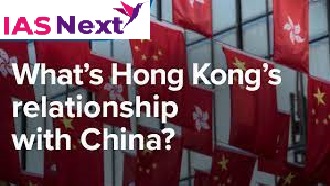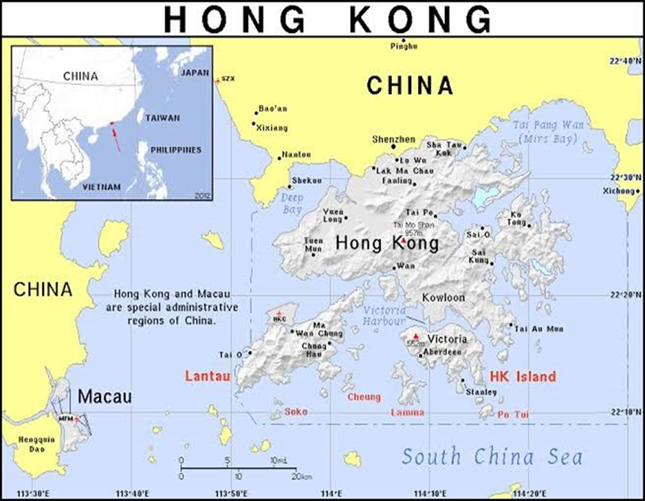CURRENT AFFAIRS
Get the most updated and recent current affair content on Padhaikaro.com
Relations between China and Hong-Kong
- IAS NEXT, Lucknow
- 25, Dec 2021

Reference News:-
Pillar of Shame, a memorial to the victims of the Tiananmen crackdown, was recently dismantled by China. 
Pillar of Shame:
The Pillar of Shame, a haunting eight-metre tall sculpture showing intertwined bodies with hollowed eyes and open mouths — an anguished mass of humanity — was created
by Danish artist Jens Galschiot as a tribute to the victims of China’s crackdown in Tiananmen Square in June 1989.
What’s the issue now?
- The statue has been at Hong Kong University (HKU) since 1997, installed shortly after one of Hong Kong’s annual June vigils at Victoria Park, where thousands gathered every year to mark the anniversary.
- The vigil itself had been symbolic of Hong Kong’s special status under the “one country, two systems” model that granted it freedoms that are denied on the mainland, where commemorations of June 4 are banned.
- The vigil did not take place in June this year for the first time, with the police cordoning off the park.
- If the end of the vigil was seen as a significant symbol of one of Hong Kong’s distinct freedoms slipping away, the removal of the statue has now been added to the list.
Recent changes:
- Hong Kong’s changes, including the shutting down of newspapers and an overhaul of the curriculum in schools and colleges, have come thick and fast in recent months after Beijing, in June 2020, passed a new national security law that lists stiff penalties for subversion and secession.
- The passing of the law followed months of pro-democracy protests in 2019 calling for direct elections, including for the top post of Chief Executive, who is now nominated.
- Beijing has also overhauled the electoral system, reducing the share of directly elected representatives in Hong Kong’s Legislative Council (LegCo), down from 50% to 22%. The new rules also introduced a review committee to decide on the eligibility of candidates to ensure only “patriots” could run for office.
How is Hong Kong ruled?
It is ruled under One Country Two Systems approach.
As per the policy, the Hong Kong and Macau Special Administrative Regions, both former colonies, can have different economic and political systems from that of mainland China, while being part of the People’s Republic of China.
Hong Kong returned to Chinese control on July 1, 1997, and Macau’s sovereignty was transferred on December 20, 1999.
- The regions would have their own currencies, economic and legal systems, but defence and diplomacy would be decided by Beijing.
- Their mini-Constitutions would remain valid for 50 years — till 2047 for Hong Kong and 2049 for Macau. It is unclear what will happen after this term.

Chinese law in Hong Kong to respond to foreign sanctions:
- The law is proposed to be introduced through Hong Kong legislation rather than Beijing legislation, by adding it to an annex of Hong Kong’s mini-constitution, known as the Basic Law.
What’s the law all about?
- Beijing adopted a law in June under which individuals or entities involved in making or implementing discriminatory measures against Chinese citizens or entities could be put on a Chinese government anti-sanctions list.
- Under China’s law, such individuals could then be denied entry into China or be expelled.
- Their assets in China may be seized or frozen. They could also be restricted from doing business with entities or people in China.
Why was such a law introduced?
The law comes as the United States and European Union step up pressure on China over trade, technology, Hong Kong and the far western region of Xinjiang.
Concerns and issues associated with the law:
Critics have warned that Hong Kong’s adoption of the law could undermine its reputation as a global financial hub.